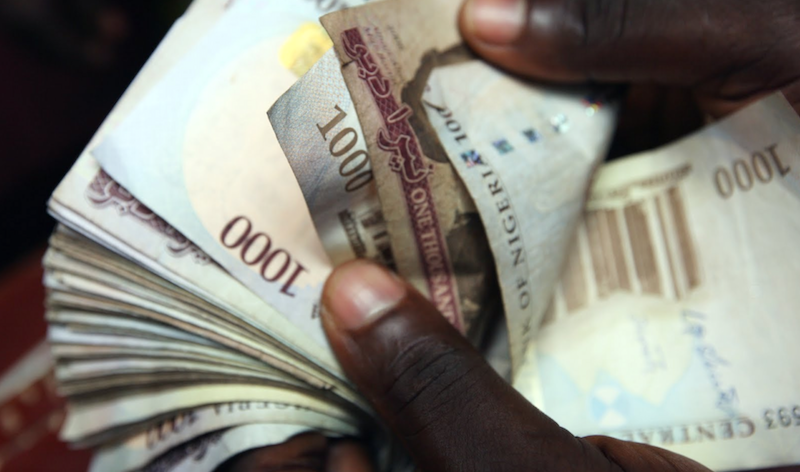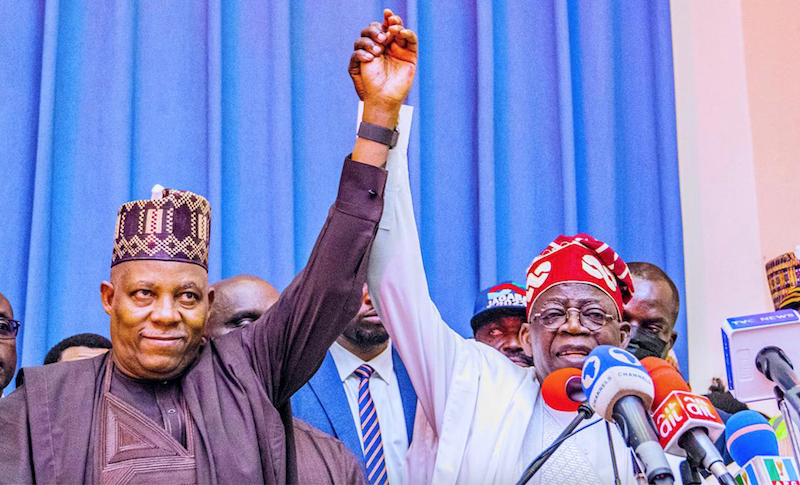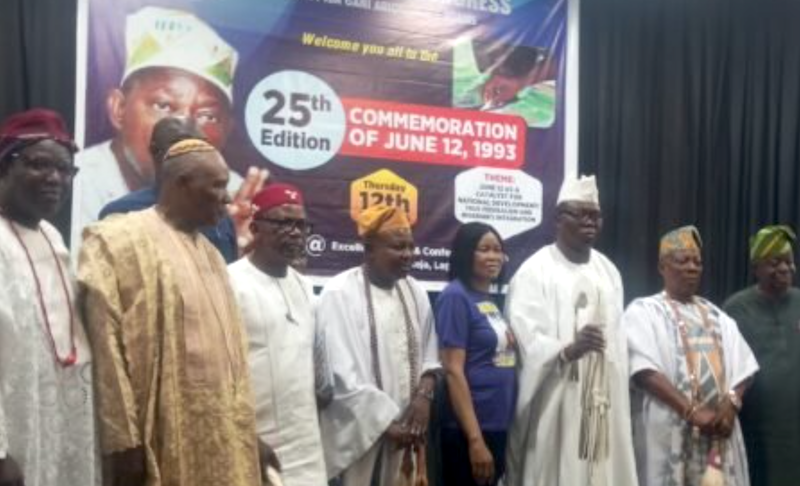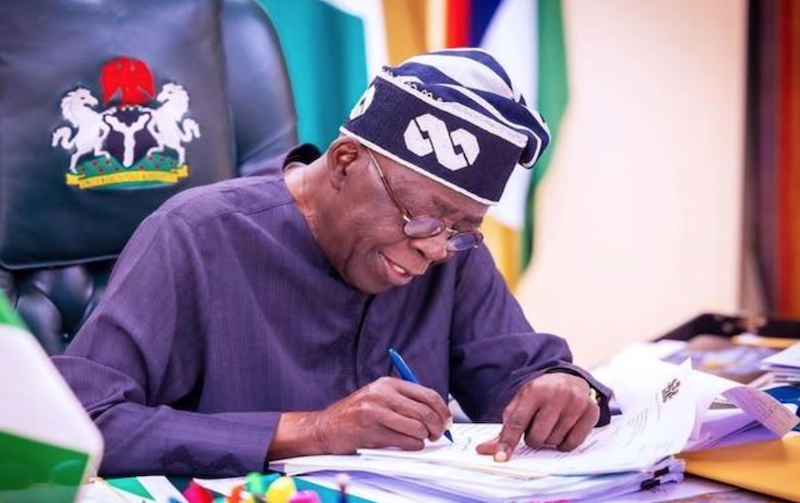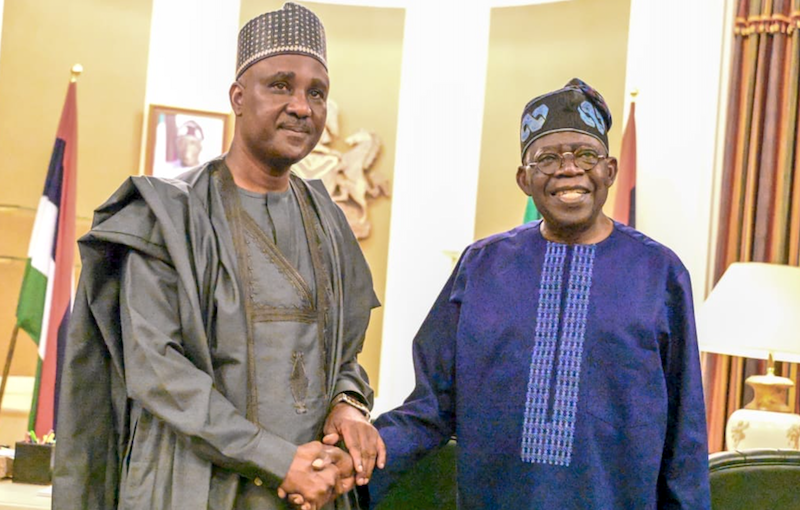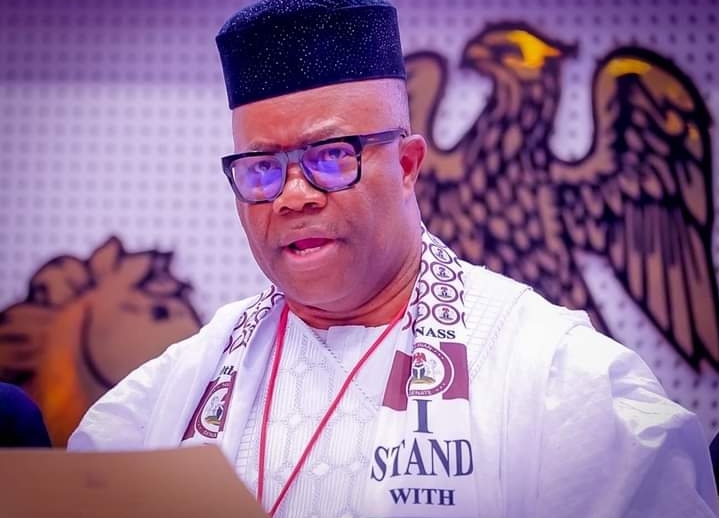Candidate of the Labour Party in the 2023 presidential election, Mr Peter Obi has said Nigeria cannot be justifiably classified as a democratic country, stressing that the vital indicators of democracy are noticeably absent and that some do not even exist.
TheNewsGuru.com (TNG) reports Mr Obi stated this shortly after President Bola Tinubu in his address at a joint session of the National Assembly in Abuja on Thursday in commemoration of this year’s Democracy Day said there is no plan by his administration to turn Nigeria into one-party state..
According to Tinubu, since 1999, democracy has risen from the ashes and destitution of military rule to freedom for the people today, while highlighting the progress made so far in Nigeria’s democratic journey.
“Today, June 12, is slated as Democracy day. Most unfortunately, in our present state, our dear country Nigeria cannot be justifiably classified as a democratic country. The vital indicators of democracy are noticeably absent. Some do not even exist,” he stated.
Obi’s Democracy Day 2025 speech titled “Democracy in Decline: Reflecting on Two Years of Present Government” reads in full below:
Democracy is said to be ‘a government of the people, by the people, and for the people,’ yet none of these three measures exist in our democracy today. Rules, regulations and requirements to participate in elections or be elected for are not followed, consequently, individuals who are to be disqualified ab-initio are now holding public offices.
As we mark June 12, a day symbolizing the struggle for true democracy in Nigeria, it is deeply troubling that under this present administration in a short span of two years, our nation has witnessed broad erosion of democratic principles. There has been a corresponding decline in security and the quality of life for millions of Nigerians. We have traversed from rigged elections to collapsing social services; from soaring poverty to rising corruption; and from a seemingly stable economy to a parlous economy.
It is most troubling that in its two years in office, the present government has brought the nation to the point where our leaders now celebrate and endorse failure, lies, and propaganda. The government today, rather than show genuine accountability and measurable progress, focuses on manipulating narratives, gaslighting the public, shifting blame and weaponizing governance. Meanwhile, Nigerians live in a worsening and worrisome insecurity, widespread corruption, hunger, and general despondence. There are no clear benchmarks for measuring tangible development, as we continue to witness the collapse of key indicators – like education, healthcare, and poverty alleviation- which are parameters for measuring national progress.
Simple comparisons of what has happened in the past two years, now relies on propaganda and misinformation to mask the mis governance.
Our country today can best be described as a nation declining fast in all its facets. The security of lives and property has worsened, and the rule of law is virtually non-existent. These are the hard-verifiable facts:
1. On May 29th, 2023, when this government was sworn into office, Nigeria’s Gross Domestic Product (GDP) stood at $364 billion. As of today, it has declined to $188 billion, a decline of almost fifty percent (50%).
2. Nigeria’s GDP per capita was $1,640 as of May 2023, but today it has dropped drastically to about $835, a devastating decline of about 50%.
3. Nigerians living in multi-dimensional poverty increased from 38.9% to 54% within this period, with about 129 million Nigerians now living below the poverty line. The World Bank reported recently, that 75% of Nigerians in the rural area now live in poverty as at 2025, and even more than previously recorded in the urban areas.
4. Our education sector has deteriorated significantly. Today, more than 18.3 million Nigerian children are out of school, the highest number in the world. The quality of education in Nigeria is also fast deteriorating. Many of our children are being taught sciences without any science lab and computer studies without any computers. Students are now writing WAEC and other national exams in darkness relying on candles. There are now even glitches in their exams.
5. Health services have worsened drastically. The National Primary Health Care Development Agency decried that less than 20% of over 30,000 Primary Healthcare Centers across the nation are fully functional.
I have even recently visited some Health Centers where delivery rooms were without toilets. The United Nation recently reported Nigeria as the world’s worst country to give birth, with one death recorded every seven minutes.
6. Nigerian businesses continue to collapse at alarming rates. Within the past two years, approximately 7 million Small and Medium Enterprises (SMEs) shut down and folded up across Nigeria. Over 80 manufacturing companies have permanently closed their operations.
Funding costs cost of raw materials and energy costs have surged to an incredible level making these manufacturers shut down.Over 15 major multinationals (including GlaxoSmithKline, Diageo, Procter & Gamble, and Shoprite) have exited Nigeria due to the harsh operating environment
7. Our hunger crisis arising from food insecurity has deepened in these 2 years. Based on the Global Hunger Index (GHI) reports, Nigeria’s hunger situation has taken a hit, as we are now one of the hungriest countries in the world.
Millions can no longer afford food due to high costs of food and nonexistent disposable income.
8. Our national population is experiencing a mental health crisis as the mental health and stress level within this period has increased drastically.
Nigeria is now one of the top three (3) most stressed countries in the world. Fifty nine percent (59%) of Nigeria’s population are under daily stress. Mental health experts and advocates have warned the present situation in Nigeria is having extremely adverse effect on the population as it contributes to anger, anxiety, and depression levels in the country. The World Health Organization (WHO) estimates that over 20 million Nigerians are now affected by mental illness.
9. Despite the trillions of naira purportedly saved from the removal of fuel subsidies (a policy initially justified as a means to curb borrowing), this government has, within two years, borrowed far more money than the administrations of President Umaru Yar’Adua, President Goodluck Jonathan, and President Muhammadu Buhari combined.
Today, Nigeria’s overall public debt is estimated at close to ₦188 trillion. Nigerians were informed that these borrowed funds would be allocated to critical sectors of development. Still, there has been no significant improvement in education, healthcare, or poverty alleviation; critical sectors that are vitally important for national development.
10. Brazen Corruption is at its worst under this administration. Nigeria has now become a crime scene. Now our national budget is routinely inflated and padded without consequences. One of the most glaring manifestations of this, is the extensive padding of the 2025 national budget. BudgIT revealed that about ₦7 trillion was questionably inserted by the National Assembly. These figures suggest a pattern of inflated costs and misappropriation of funds.
11. Power generation rate which the administration claimed to have increased is yet another propaganda. The only increases in power are the excessively high electricity tariffs being paid by Nigerians. The incessant blackout arising from multiple collapse of the national grid is a clear indication of the sorry state of our power and electricity industry.
In 2022, the electricity tariff for Nigerian consumers averaged around ₦64 per kilowatt-hour (kWh). By 2025, there has been a substantial mark up in electricity tariffs, with Nigerians now paying approximately ₦225 per kWh to be in darkness.
What we have now is a more-traffic and more darkness situation for our citizens.
Nigerians should not forget the promise of Mr. President while campaigning on 22nd December 2022: “If I Don’t Give You Constant Electricity in The Next 4 Years, Don’t Vote For Me For Second Term”.
It’s been 2 years of grid collapses and constant darkness. This is already midterm of the administration. We look forward to when he will fulfill this categorical promise.
12. Unemployment remains alarmingly high in the country. Although the government has attempted to manipulate the statistics to suit its narrative, the reality is that unemployment is worsening, especially amongst youths in their productive age. A majority of Nigerian youths are “not in education, employment or training” (NEET) category. Multiple reputable organizations, including the International Labour Organization (ILO) and the United Nations Development Programme (UNDP), have cautioned against reliance on the nations’ data, as they are inconsistent with the realities on ground.
The ILO has noted that Nigeria’s youth unemployment and underemployment rates remain dangerously high. There are also concern on the government’s reporting unemployment figures without addressing the underlying employment challenges, as the revised figures do not reflect the true hardship in the labour market of over forty percent (40%).
Finally, I respectfully appeal to President Tinubu to emulate late President Umaru Yar’Adua who was honest enough to admit the process that brought him into office was wrong and not sufficiently credible and thus insisted on doing what is right to save our democracy. And similarly, President Goodluck Ebele Jonathan who saved our nascent democracy by accepting defeat even before the election results were announced. We must end this troubling governance era that is filled with impunity, state capture, and absolute disregard for the rule of law and the checks and balances required of any worthwhile democracy.
Accordingly, this administration must:
1. Start upholding the rule of law and ensure there is transparency and real progress to the people. The President should stop touring outside Nigeria and use his remaining 2 years to tour the Nigerian states instead.
Mr. President you have already made over 30 international trips, spending nearly 150 days abroad. If you tour Nigeria’s 36 states and dedicates just 2 days to tour each state, it would take only 72 days for you to do, less than half the time you have already spent outside the country on foreign trips. You need to go around the country to see firsthand what the citizens you are serving are going through. Governing by remote control is not what Nigerians need.
2. We must endeavour forthwith to end insecurity and resettle all Nigerians living in Internally Displaced Persons (IDP) camps. It is unacceptable that millions of our fellow citizens remain displaced in their own homesteads and fatherland, while the rest of us live in comfort, and some, in opulence.
3. Allow the national electoral body in the country to be truly independent. The very agency that is supposed to serve as an independent electoral body for Nigeria elections has lost its neutrality and credibility and now operates as an extension of the APC government, thus undermining democracy, eroding public trust, and turning elections into orchestrated endorsements rather than credible contests.
4. Aggressively tackle the economic problems by expanding agricultural and manufacturing productivity, through measures that will secure our farmers to go back to the farms and reduce production costs for manufacturers—in order to boost employment, which will, in turn, contribute to the nation’s growth and generate even more revenue for the government. This is a better approach than attempting to increase taxes in an unproductive economy, which will only lead to less growth.
This is time to stop the propaganda and lies and let us make Nigeria the democratic nation that it supposed to be.
I respectfully call on all Nigerians not to give up, but to put all hands on deck. Now is the time to demand accountability, genuine leadership, and a government that prioritizes the welfare, security and democracy of its people over empty rhetoric and propaganda.
A New Nigeria is POssible. God bless the Federal Republic of Nigeria. -PO.
